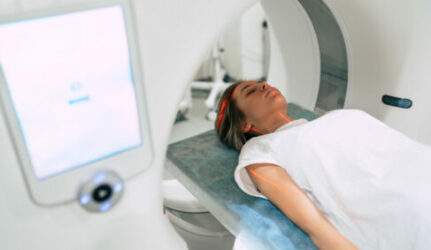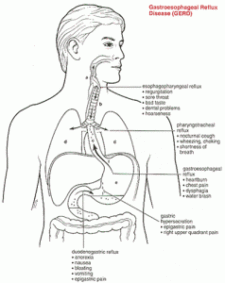Research Project Updates

CPFF Robert Davidson Fellowships fill a gap in ILD care
A recent graduate of CPFF’s Robert Davidson Fellowship, Amanda Grant-Orser, told the CPFF Board during a presentation in June, that the CPFF fellowships provide a structure for ILD clinical practice and research that is not available in any Canadian residency training program.


CPFF fellow advances ILD research and now provides specialist care
Dr. Kelly Sun is a prime example of the goals of the Robert Davidson CPFF Fellowship: to advance knowledge of pulmonary fibrosis (PF) and to train respirologists to expand patient access to PF specialists.
As a 2021-2022 fellowship recipient, Dr. Sun published research on interstitial lung disease (ILD), made a meaningful contribution to the Canadian Registry of Pulmonary Fibrosis (CARE-PF) database, is completing her Master’s degree in clinical epidemiology and secured a position providing ILD specialist care at Credit Valley Hospital in Mississauga, Ontario.
Creating Universal Blood-Type Organs for Transplants
You may not have to wait as long for a lung transplant following the promising results of a recent “proof-of-concept” study into creating universal type O blood lungs. Researchers at UHN (University Health Network) in Toronto proved it is possible to convert blood type safely in donor organs intended for transplantation.


CPFF Funded Research Study Fills in Gaps on Lung Disease and Rheumatoid Arthritis
Using health services data between 2000 and 2018 from the province of Ontario, respirologist Dr. Lee Fidler and his co-principal investigator scientist Dr. Andrea Gershon of ICES, along with other colleagues, set out to investigate the incidence and prevalence of rheumatoid arthritis related interstitial lung disease (RA-ILD) in the province. The research was conducted at ICES and funded by a $20,000 research grant from CPFF. Read More
A Study that Looks at Ways to Determine Progression in IPF
For the past three years, researchers in London, Ontario and Rome, Italy, have been investigating the relationship between disease progression determined by high resolution CT scan (HRCT) and functional decline in IPF. The study sought to confirm that a simple HRCT fibrosis visual score is a reliable predictor of mortality in IPF, when conducted regularly over time, and to determine which pulmonary function tests best reflect survival rates similar to the HRCT results.
You can read more about the study and the results in our Hope Breathes Here newsletter here.


Screening for myositis antibodies can mean a change in diagnosis for some ILD patients
An article in the journal Lung has caused quite a stir in the ILD medical community both in Canada and internationally, according to Dr. Lee Fidler and Dr. Shane Shapera of the Toronto General Hospital ILD (interstitial lung disease) Clinic.
“Essentially, we found that screening for these antibodies led to a change in diagnosis for 8.5% of patients. For those patients, the results had major implications for their care,” says Dr. Fidler. While myositis-ILD treatment is focused on immune-suppressing medications, the same medications can increase mortality in patients with IPF (idiopathic pulmonary fibrosis). Anti-fibrotic medications are currently unproven in the treatment of myositis-ILD and are routinely used to treat IPF. (Read more in the May 2019 issue of the CPFF newsletter Hope Breathes Here.)
Idiopathic Pulmonary Fibrosis and Gastroesophageal Reflux Disease Research Project
The Canadian Pulmonary Fibrosis Foundation partnered with the University Health Network’s Interstitial Lung Diseases Clinic at Toronto General Hospital to support their Idiopathic Pulmonary Fibrosis and Gastroesophageal Reflux Disease research project. This initiative shows great promise to better understand pulmonary fibrosis.
It is with your generous support the Foundation was able to present Dr. Shane Shapera, MD, FRCPC and Dr. Ted Marras, BSC, MD, MSC, FRCPC with a $52,000 research grant in 2010 to fund this study.
Project Update
The role of GERD in the development of IPF has become quite an exciting and controversial topic in IPF since the CPFF provided this grant in 2010. The GERD study was presented at the American Thoracic Society Conference in Washington D.C. in May 2017 by Dr. Terrence Lee and Dr. Jolene Fisher (CPFF Medical Advisory Board member). The results were quite interesting.
In brief, they found that many patients with IPF have both acid and non-acid reflux episodes. Non-acid reflux contains some stomach juices and enzymes that we use to digest food. The high frequency of acid reflux was known before, but the study was the first to show the high prevalence of non-acid reflux in patients treated with antacids.
If it turns out to be true that non-acid reflux is one of the causes of IPF, then our data may help to explain why treatment with antacids have yielded such mixed results in clinical trials. Antacid therapy might only be treating the acidic component of the reflux and ignoring the non-acid component of the reflux.
The article reference is Am J Respir Crit Care Med 193;2016:A2709
Background: Idiopathic Pulmonary Fibrosis
IPF effects between 70-80 / 100,000 people and incidence in people over 75 years old may be up to 250 / 100,000. The cause of this devastating disease remains unknown and this disease is relentlessly progressive with a median survival of 3 years after diagnosis. Unfortunately, traditional therapies do not consistently influence progression of the disease and have many side effects. Currently, lung transplant is the only intervention known to improve survival in IPF.
Background: Gastroesophageal Reflux Disease (GERD)
GERD is abnormal movement of stomach contents into the esophagus. This “refluxate” is very acidic and contains digestive enzymes.

Background: IPF and GERD
Pulmonary fibrosis was triggered by the insertion of acid into the lungs in animal models, suggesting a relationship between IPF and GERD. Research also indicates GERD is common in IPF:
- May occur in up to 90% of patients
- Only 25% of these patients have symptoms
Research Questions and Hypothesis
Research Question:
Is there a relationship between abnormal esophageal reflux, GERD symptoms, GERD treatment and progression of IPF?
Hypothesis:
In a large, population of patients with IPF, GERD will be common and that treatment of GERD will lead to stabilization or improvement in lung function in some patients.
Study Design and Impact
Observational study
All patients will be assessed for GERD
- Symptoms (questionnaires)
- 24-hour esophageal monitoring
Patients with symptoms or abnormal esophageal testing will be offered treatment
Study Impact:
Direct patient benefits
- Standardized approach to assessment of GERD to look for and treat “silent” reflux
Scientific Benefits
- First large-scale study examining the relationship between IPF and GERD
- Future large-scale trials of GERD therapy in IPF



